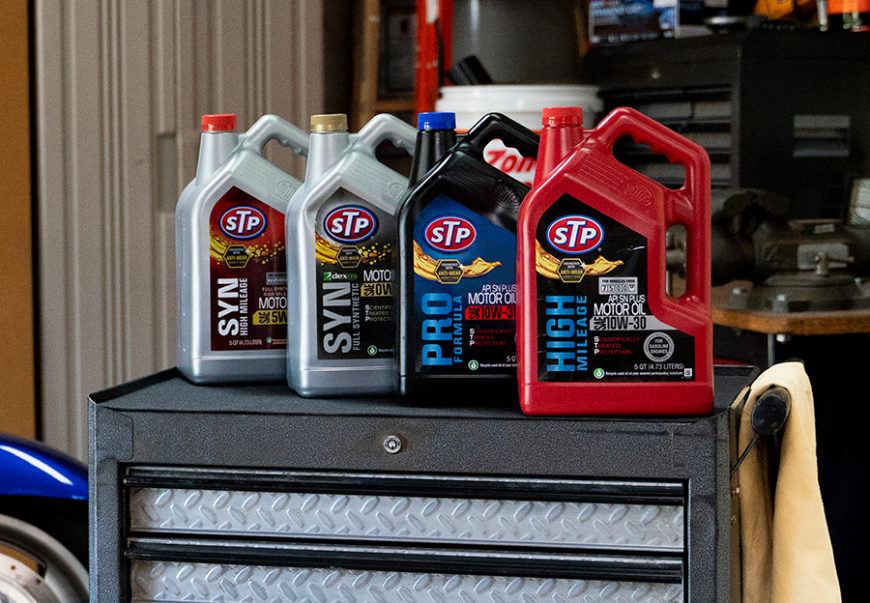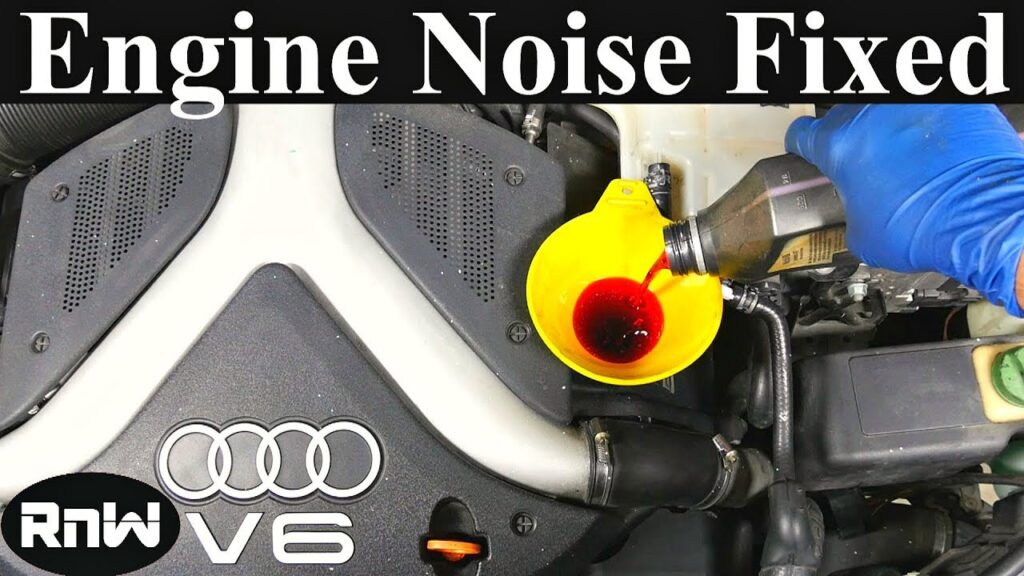The best synthetic engine oil for cold weather is Mobil 1 0W-30, known for its exceptional cold-start protection and high performance. When facing low temperatures, opting for synthetic or synthetic blend motor oil ensures superior protection.
When it comes to winter conditions, it is crucial to choose an oil that flows smoothly for easier starts and optimal engine performance. Protecting your engine in extreme cold weather is essential, and using a high-quality synthetic oil like Mobil 1 can significantly enhance your vehicle’s longevity and performance during harsh winter months.
By selecting the best synthetic engine oil for cold weather, you can ensure your engine remains well-lubricated and protected even in freezing temperatures.

Credit: www.autozone.com
Benefits Of Using Synthetic Engine Oil In Cold Weather
When it comes to maintaining your engine’s performance in cold weather, using synthetic engine oil comes with several notable benefits that can help ensure your vehicle runs smoothly even in freezing temperatures.
Improved Cold-start Performance
- Synthetic engine oil flows more easily at low temperatures, allowing for quicker startup.
- Enhanced cold-start performance reduces engine wear during ignition.
- Quick startup minimizes strain on the battery and starter system.
Enhanced Lubrication at Low Temperatures
- Synthetic oil maintains its viscosity better in cold weather compared to conventional oils.
- Improved lubrication protects engine parts from friction and wear at low temperatures.
- Consistent lubrication ensures smooth engine operation in cold conditions.
Reduced Wear and Tear on Engine Components
- Synthetic oil forms a protective layer on engine components, reducing friction and wear.
- Decreased wear and tear extends the lifespan of critical engine parts.
- Enhanced protection helps prevent damage from cold weather conditions.

Credit: www.autozone.com
Top Picks for Best Synthetic Engine Oils in Cold Weather
Discover the top picks for the best synthetic engine oils in cold weather. These oils are specifically designed to provide optimal performance during cold starts, ensuring smooth engine operation even in freezing temperatures. Experience superior protection and reliability with these recommended synthetic engine oils for cold weather conditions.
Brand A: Features And Benefits
Brand A is an exceptional choice for cold weather conditions due to its unique features and numerous benefits. With superior cold start performance, Brand A ensures quick and effortless engine startup even in extreme cold temperatures.
One of the key features of Brand A is its advanced formulation, specifically designed to prevent engine wear and tear during cold starts. It provides excellent cold temperature fluidity, reducing friction and enhancing overall engine performance.
Additionally, Brand A offers exceptional protection against engine deposits, ensuring optimal engine cleanliness even in cold weather. This oil also maintains its viscosity stability, providing consistent lubrication and reducing the risk of engine damage.
Brand B: Features And Benefits
Brand B is another top contender when it comes to the best synthetic engine oils for cold weather. This oil is engineered to deliver excellent cold start performance, even in the most frigid conditions.
One of the standout features of Brand B is its exceptional low-temperature flow properties, which allow for smooth and effortless startup even in extremely cold climates. It minimizes wear and tear on critical engine components during those crucial initial moments.
Furthermore, Brand B provides superior protection against engine sludge and deposits, ensuring optimal engine cleanliness and performance throughout the cold weather season. Its advanced formulation also maintains consistent viscosity, offering long-lasting lubrication and reducing the possibility of engine damage.
Brand C: Features And Benefits
Brand C is a reliable choice for those seeking the best synthetic engine oil for cold weather conditions. It is specially formulated to deliver exceptional performance in sub-zero temperatures, ensuring reliable cold start capabilities.
One of the remarkable features of Brand C is its advanced cold flow technology, which allows for smooth and easy engine startups even in extreme cold weather. This oil reduces engine wear during the critical initial moments, providing superior protection for your engine.
In addition, Brand C offers excellent resistance against engine deposits, keeping your engine clean and maximizing its efficiency in cold weather conditions. Its stable viscosity ensures long-lasting protection and reduces the likelihood of engine damage caused by cold weather.
Understanding Oil Viscosity For Cold Weather
Understanding oil viscosity for cold weather is crucial. Opt for the best synthetic engine oil designed for cold temperatures to ensure smooth engine performance. Choose a high-quality oil that maintains viscosity, providing optimal protection during extreme winter conditions.
Importance Of Viscosity Ratings For Cold-weather Performance
When it comes to choosing the best synthetic engine oil for cold weather, understanding oil viscosity is key. Viscosity refers to the oil’s resistance to flow and its ability to maintain its thickness in different temperatures. In cold weather, it is crucial to select an oil with the right viscosity rating to ensure proper lubrication and protection for your engine.
Viscosity ratings are represented by a combination of numbers and letters, such as 5W-30 or 10W-40. The first number (e.g., 5W or 10W) indicates the oil’s winter viscosity, while the second number (e.g., 30 or 40) represents the oil’s viscosity at operating temperature. In colder temperatures, the oil needs to flow easily to reach engine components quickly, which is why the winter viscosity rating is essential for cold-weather performance.
A lower winter viscosity rating, indicated by a smaller number before the “W,” means the oil is thinner and flows more easily in cold conditions. This allows for better engine start-up, reduced wear on engine parts, and improved fuel efficiency. On the other hand, a higher winter viscosity rating, indicated by a larger number before the “W,” means the oil is thicker and may not flow as easily in colder weather, potentially leading to poor engine performance and increased wear.
Choosing The Right Viscosity For Your Vehicle
Choosing the right viscosity rating for your vehicle depends on several factors, including the manufacturer’s recommendations and the climate in which you primarily operate your vehicle.
To find the recommended viscosity rating for your vehicle, refer to the owner’s manual or consult with a trusted mechanic. The manual will usually provide a range of acceptable viscosity ratings for different temperature conditions. It’s important to follow these recommendations to ensure optimal engine performance and longevity.
If you live in an area with extremely cold temperatures, you may want to consider using a lower winter viscosity oil, such as 0W-20 or 5W-20. These oils are designed to provide excellent cold-weather performance and start-up protection. However, it’s essential to check your manufacturer’s guidelines to ensure that using a lower winter viscosity oil won’t void your vehicle’s warranty.
On the other hand, if you live in a moderate to warmer climate, you may opt for a higher winter viscosity oil, such as 10W-30 or 10W-40. These oils offer better protection at higher operating temperatures while still providing adequate cold-weather performance.
Remember, choosing the right viscosity oil for your vehicle is crucial for maintaining proper engine performance and protection in cold weather. By understanding viscosity ratings and following the manufacturer’s recommendations, you can ensure that your engine stays in top shape regardless of the temperature outside.
Guidelines For Selecting The Best Oil For Cold Weather
Guidelines for Selecting the Best Oil for Cold Weather
Api Rating And Certification
When choosing synthetic engine oil for cold weather, pay attention to the API rating and certification. Look for oils that meet the latest API specifications to ensure optimal performance in low temperatures.
Viscosity Grade Recommendations
Consider the viscosity grade recommendations for cold weather conditions. Opt for oils with lower viscosity grades as they flow more easily in cold temperatures, providing better engine protection.
Considerations For High Mileage Vehicles
For high mileage vehicles, special considerations are necessary. Choose synthetic oils designed for high mileage engines, as they offer enhanced protection against wear and tear, especially in cold weather.
Expert Recommendations and Customer Reviews
For the best synthetic engine oil for cold weather, expert recommendations and customer reviews emphasize the importance of using high-quality, low-viscosity oils like 0W-20 or 0W-30. These oils provide excellent cold start protection and optimal engine performance in sub-zero temperatures, ensuring smooth operation and efficient lubrication during winter.
Insights From Industry Experts
If you want to make sure your vehicle’s engine is well-protected in cold weather conditions, it’s essential to use the best synthetic engine oil. When it comes to expert recommendations, industry professionals unanimously agree that choosing the right synthetic engine oil is crucial for optimal engine performance in cold weather.
Industry experts emphasize that synthetic engine oils, especially those with a low viscosity, offer improved flow properties at cold temperatures, ensuring better lubrication during cold starts. Synthetic oils are designed to provide excellent protection and performance in extremely low temperatures, making them ideal for cold weather driving situations.
Customer Satisfaction And Performance Ratings
When it comes to customer satisfaction and performance ratings, synthetic engine oils have consistently received high praise for their ability to deliver reliable engine protection during cold weather conditions. Many drivers have reported improved cold start performance and overall engine efficiency after switching to synthetic oils.
According to customer reviews, synthetic engine oils have demonstrated exceptional cold-weather performance, with enhanced viscosity properties that ensure minimal resistance during start-up. This has resulted in smoother engine operation and reduced wear and tear, ultimately leading to increased customer satisfaction and positive performance ratings.
Winter Oil Change Tips
Key Steps for a Successful Winter Oil Change
- Choose a synthetic engine oil specifically formulated for cold weather conditions.
- Ensure the engine is completely cooled before starting the oil change process.
- Use quality tools and equipment to prevent any mishaps during the oil change.
- Check the manufacturer’s recommendations for the correct oil viscosity for winter.
Precautions To Take When Changing Oil In Cold Weather
- Work in a well-heated indoor space to avoid exposure to extreme cold.
- Wear appropriate gear such as gloves and warm clothing to stay comfortable.
- Allow the engine to run for a few minutes to warm up the oil before draining it.
- Double-check all seals and connections to prevent leaks in frigid temperatures.

Credit: www.thedrive.com
Frequently Asked Questions
What Is The Best Engine Oil For Cold Starts?
The best engine oil for cold starts is synthetic or synthetic blend motor oil. They offer better protection in extreme temperatures than conventional oil. It is essential to consider asking for a synthetic or synthetic blend for improved performance in both high and low temperatures.
What Is The Best High Mileage Oil For Cold Weather?
The best high mileage oil for cold weather is a synthetic blend for better protection in extreme temperatures.
What Oils Are Best For Cold Weather?
The best oils for cold weather are synthetic or synthetic blends, offering better protection in extreme temperatures. Warming essential oils like black pepper, ginger, and rosemary are also beneficial for easing aches and pains during winter. AMSOIL synthetic motor oils are recommended for easier starts in extreme cold weather.
Is 5w30 Or 10w30 Better For Winter?
In cold weather, it is recommended to use 5W30 or 10W30 motor oil. Both provide better protection and flow easily in low temperatures.
Conclusion
As winter approaches, choosing the right synthetic oil for cold weather is crucial. Opt for high-quality options like AMSOIL for smoother starts and optimal engine protection. Don’t overlook the importance of selecting the best oil to keep your engine running smoothly in frigid temperatures.
Choose wisely for a reliable winter engine performance.

